Article V: The Convention of the States: Our Founders Gave State Legislatures the Power to Make Amends Without Congressional Action
There is a reason an Article V Convention of the States (COS) has never convened since 1789; it’s difficult. Our Founders designed it to be an arduous process, as is the case to amend the Constitution, needing ¾ of the states to ratify any changes. Article V states:
Article V requires 2/3 of the state legislatures to bring forth a Convention of the States and ¾ of the states to ratify that amendment to the Constitution.
In 2017, Robert G. Natelson described the history of the Convention of the States predating the Constitution through the present.
But what happens when the Constitution does not protect We The People (WTP) from the tyranny of the minority, as in the big corporatocracy/big government oligarchy? What do we do when the big, central government is the root of the problem?
America’s Founders (both Federalists and “Anti-Federalists[1]”) documented their disagreements in creating a new federal, central government in the Federalist Papers and the The-Anti-Federalist-Papers. As we know, our “Anti-Federalist” ancestors warned us that establishing a central government would be dangerous as it could grow too big, and we did not heed the warnings of the “Anti-Federalists[2]” that the government would grow too big and corrupt.
At the Philadelphia Convention of 1787, disagreements began and states like Massachusetts, New York and Virginia resisted, and insisted on a Bill of Rights in the new Constitution and they were not going to sign it without it. (Thank you, wise founders.)
James Madison’s notes of the 1787 Constitutional Convention revealed that “Mr. Hamilton expressed his anxiety that every member should sign. A few characters of consequence, by opposing or even refusing to sign the Constitution, might do infinite mischief by kindling the latent sparks which lurk under an enthusiasm in favor of the Convention which may soon subside. No man's ideas were more remote from the plan than his own were known to be; but is it possible to deliberate between anarchy and Convulsion on one side, and the chance of good to be expected from the plan on the other.”
[1] The Anti-Federalists were the real Federalists. The Federalists were the Nationalists in a version of 18th century Newspeak.
Clearly, Madison did not want to endure another convention of the states, post 1787, to include adding a Bill of Rights to the Constitution, so he drafted the Bill of Rights as the first 10 Amendments to appeal to the states who refused to sign the Constitution without a Bill of Rights.
Although there have been several unsuccessful petitions by state legislatures to convene for a new convention of the states since the Bill of Rights was ratified in 1791, it was not until the 1970s that action to convene for a new convention of the states garnered wide interest. Interest in holding a convention of the states for a single issue – writing a balanced budget amendment- began to grow.
By 1983, 32 two states had signed on, needing only two more states to meet the threshold per Article V. As the vision for a balanced federal budget grew, Congress passed the Gramm/Rudman/Hollings Balanced Budget in 1985, only to be overturned by the US Supreme Court in 1986 in Bowsher v. Synar, 478 U.S. 714 (1986).
In 2013, Mark Meckler, who practiced law for two decades, founded the Convention of the States Action (COSA) “to implement this constitutional solution to take power from DC and return it to the sovereign citizens of the states.”
In 2016, COSA presented a simulated convention that passed the following amendment proposals:
1. Requiring the states to approve any increase in the national debt;
2. Imposing term limits on Congress (effective retroactively);
3. Limiting federal overreach by returning the Commerce Clause to its original meaning;
4. Limiting the power of federal regulations by allowing an easy congressional override;
5. Requiring a supermajority to impose federal taxes and repealing the 16th Amendment, which legalized the federal income tax; and
6. Giving the states (by a three-fifths vote) the power to abrogate any federal law, regulation, or executive order.
Other amendment proposals were discussed and debated, including term limits on the Supreme Court and giving the states the power to vacate a Supreme Court opinion, however, they are not on the current agenda.
Currently, COSA has 19 of at least 34 state legislatures that applied for a COS to propose Amendments to the Constitution to reign in the federal government fiscal responsibility, term limits and limit the federal government. Is that an oxymoron – federal fiscal responsibility?
A number of conservative groups worry that a COS would create a situation that occurred with the Constitutional Convention of 1787, which dismantled America’s original Constitution, the Articles of Confederation, and now would dismantle the current Constitution to eliminate the electoral college and who knows what else? Considering that the National Popular Vote Interstate Compact is gaining traction and as of May 2024, 17 states and Washington, D.C., have adopted legislation to join the National Popular Vote Interstate Compact representing 209 electoral college votes, that it is a valid concern. But could it also be that they are suffering from cognitive dissonance since the Constitution no longer protects WTP?
We know that the intent of the Constitution was that Federalism (10th Amendment) was supposed to prevail under a central government with shared powers between the Executive, Legislative and Judicial branches and that would allegedly balance the powers from corrupt megalomaniacs. How did that work out? How would Federalism prevail with a supremacy clause?
Was John Adams being moral when he signed the Alien and Sedition Acts of 1798? The ink was barely dry on the Bill of Rights (1791) when the Adams administration began locking up publishers promoting “democratic republicans” who supported Thomas Jefferson during the election of 1800. Human nature is and always will be corrupt so one would think that creating a central government is the last thing we would want.
The Left is also afraid of an Article V Convention of the States because the federal power to corrupt absolutely might be lessened which might be a reason why we should have a COS! So, is it surprising that no blue states have passed the COS yet? Mainstream media presents stories about the "dark" money from the grass roots organization to hold a COS.
In the map below, the states in green passed the COSA and the states in blue have current legislation under consideration, and yellow indicates that it was passed in one chamber. The likelihood of passage for most blue states may mirror Delaware’s recent COSA application decision on June 13, 2024: defeated.
With so many factions against freedom and with so many factions that are pro-Constitution who are naturally afraid of opening a COS pandora’s box, it feels like we are racing behind the eight ball! Will WTP figure this out before the chains of tyranny restrain any last freedom we have?
What is the answer, then, if a COS is not the answer? Nullification? Louisiana's Governor, Jeff Landry recently signed legislation banning any edicts from the United Nations, World Health Organization and the World Economic Forum. That might be the only alternative since it is highly unlikely there will be a COS/COSA.
As we gather with family and friends to celebrate America’s Declaration of Independence, we better figure something out soon because with the recent “punting” by the US Supreme Court in Murthy v. Missouri, it feels like the chains are tightening around the Bill of Rights, further and further.
But, still, ditching a central government seems like a path forward and we already have a starting place in the Articles of the Confederation. We would need a court system, but instead of a central power of unelected justices in the US Supreme court, it could be a 50-state tribunal type court, elected by state legislatures so there is a layer of protection from democracy, which ultimately leads to tyranny. We can figure this out!
For those who are afraid of dismantling the Constitution, look at America now. It gave us a good run, but it does not protect us now, for a lot of reasons, but also because we allowed too much democracy, and now, we have a large, uneducated electorate voting for free stuff.
248 years ago, Americans, despite the odds, declared American Independence; WTP can do it again! But WTP must unite and fight the “uniparty” like we have never fought before. Remember, not every American colonist was on board with declaring our Independence. Benjamin Franklin’s son, William, was a loyalist and historians say it was only about 1/3 of Americans who wanted to declare independence. Who wants a bloody war? Could revising the Articles of the Confederation avoid a civil war? Fighting enemies within and outside America is not a good place to be, but living in fear is no good either.
What if pro-Constitution factions, those sitting on the fence and market anarchists united to figure out a better way?
Vivek Ramaswamy says we are in our 1776 moment. It might be time to get our Spirit of ’76 on – whether we like it or not!


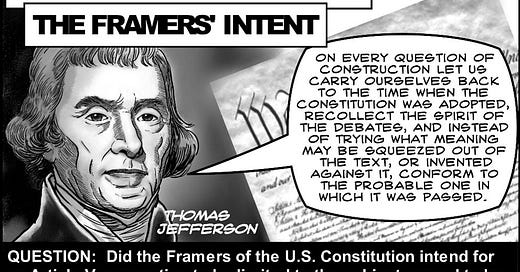



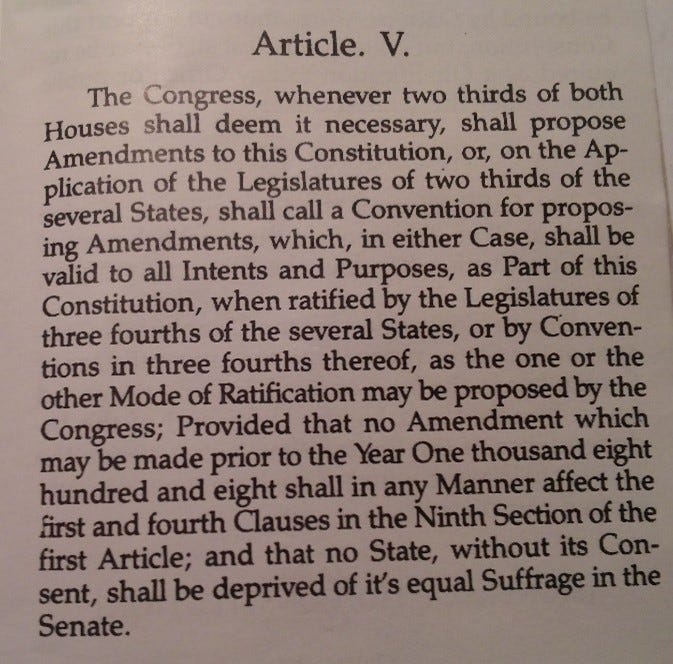
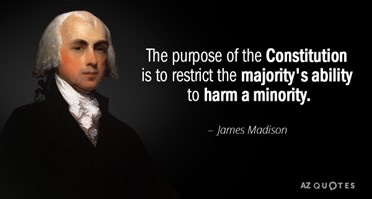

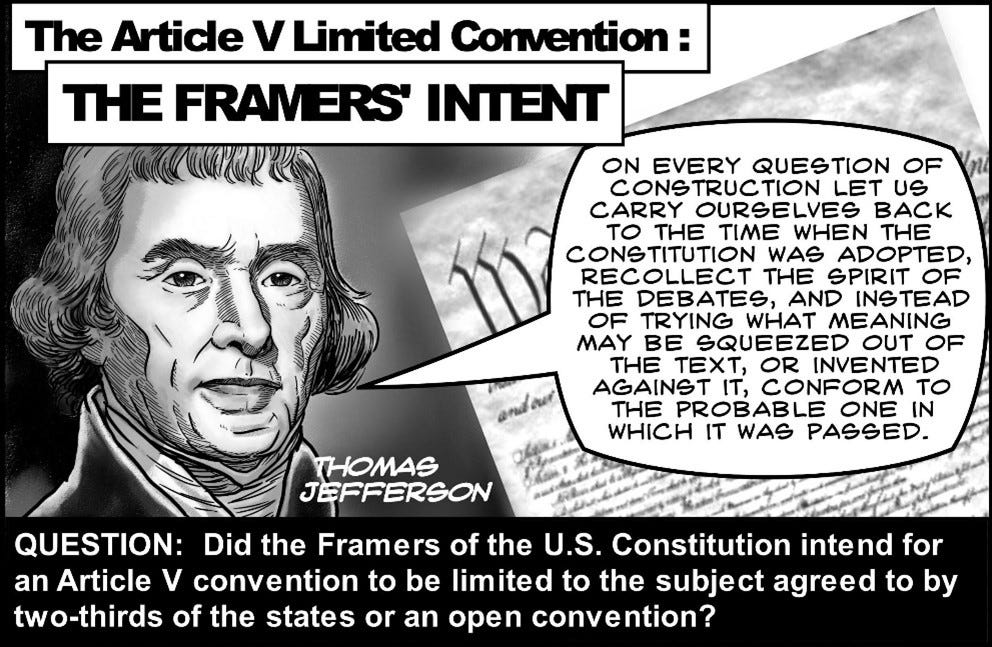
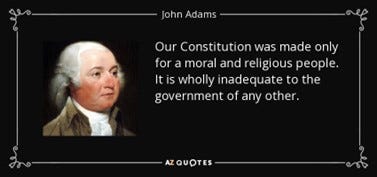
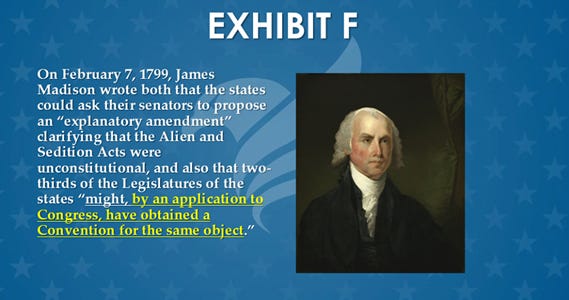
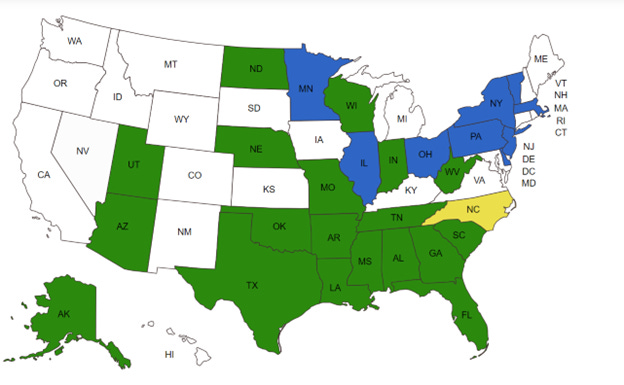

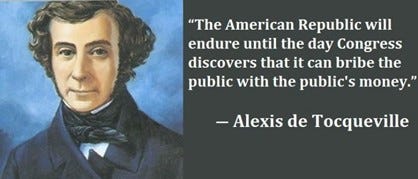

Thanks for the info. Dr. Ana Mihalcea had the interestoing idea of bringing lawsuits against the pilots. That might be doable IF we were able to get the tail numbers of the planes and I don't know how we go about that, since I'm assuming they fly low enough that they don't file flight plans and they're too high up to see the numbers. We need a brigade of involved citizens who live near these military bases to gather information.
Liz....I would appreciate it if you would contact me. I am the founder of TN Citizens for State Sovereignty. We have sponsored legislation that would create 5 different ways in which to invoke nullification taking into consideration separation among the branches of government when the federal government steps outside of its constitutional lane. This was how our founders envisioned the Constitution would function. I would like to find out more about the proposal of your organization. karen.bracken@reagan.com 215-692-2147